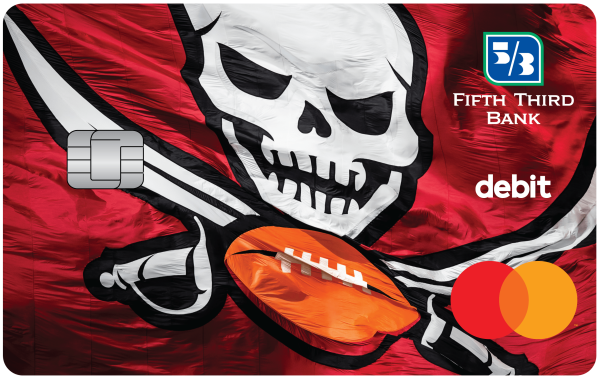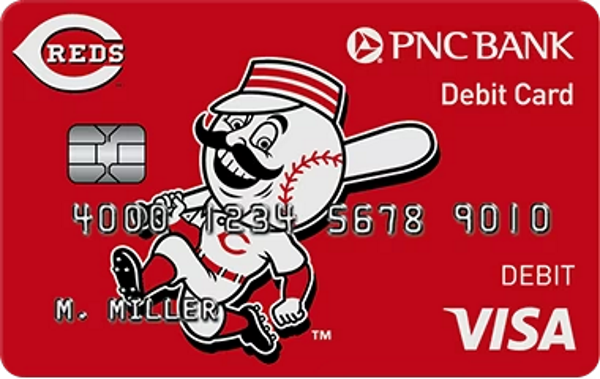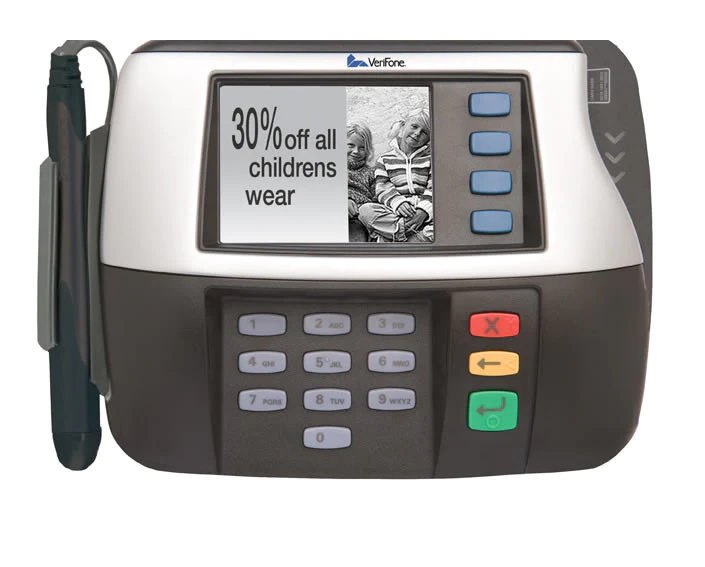
There is no limit on credit card options available today. However, in a world in which a dizzying assortment of credit card types is being promoted to customers, it is easy to feel overwhelmed by the sheer amount of options available to the people which could be harmful to them in different ways. Credit cards get a lot of negative attention for both good and bad reasons since they are also associated with several dangers that must be avoided.
The good news is that you don’t have to become an expert on every single credit card available on the market. All that is required on your side is to choose which form of credit card would be most appropriate for your requirements, and then devote your mental resources to investigating which one among those options is the best match.
Further, we will look at certain credit cards that should be avoided to prevent financial loss, high-interest rates, and other issues.
Join the Accepted Platinum Credit Card Rewards Program!
Table of Contents
1. Deferred Interest Credit Cards
Interest will be charged from the saving after the financing term ends.
Credit cards that carry deferred interest must be avoided at all costs since they will negate whatever savings you may have made during the interest-free financing phase. When you continue to carry the balance after a special financing term has ended, deferred interest accrues on that amount. In addition, you will be charged for all of the interest that has accumulated from the date of your purchase. Deferred interest is rarely charged on credit cards from major issuers; however, co-branded cards and retail cards are sometimes charged.
As an example, the Amazon Store Card main page displays the delayed interest conditions, however, it does not directly specify “deferred interest.” “Special financing options are available on all purchases of $150 or more,” Amazon says. If you don’t pay the whole debt before the end of the deferred interest term, you may have to pay the entire amount. That implies you owe all interest back to the original charge date.
For details on deferred interest periods, you should see the terms and conditions of your cardmember agreement. These terms and conditions may also be shown on the main landing page of the card issuer’s website. Look for words such as “delayed interest,” or “no interest if paid in full” when comparing loans.
2. Secured Credit Cards
Purchases and the amount in bank accounts are utilised as security.
People these days utilise their credit cards to buy necessities and even pleasures for their everyday lives, rather than paying cash. However, certain credit card lenders may assert the right to demand collateral in the form of products bought with the card if anything goes wrong.
For example, if you have difficulty making any payments or fail to make payments within the specified time, the lenders may threaten to repossess any property you have purchased with the card. It might be anything from a television to a couch to your home or automobile.
Because the costs of repossession surpass the worth of the used goods, most threats to repossess such personal property are not followed through on. Nonetheless, it is recommended that you utilise an unsecured credit card rather than a secured credit card wherever feasible to protect your assets. The annual percentage rate on secured cards is often on the high side, frequently exceeding 20%, although now they are in line according to the national average, which is a little under 20% as of November 2021.
A further kind of secured credit card enables you to borrow up to the amount you have deposited in a bank account. If you skip a payment, your money is gone. Demonstrate that you have overcome financial challenges and can make regular monthly credit card payments. Use these cards only if you can make monthly minimum payments.
3. Retail Credit Cards
Charges a high rate of interest from the day of purchase.
The use of retail credit cards provides businesses with a means of making money by enabling customers to finance their purchases at high-interest rates. They may also enable customers to spend more money at their favourite retailers than they would have been able to if they had to pay with cash alone.
While some cards may offer no interest if you pay in whole by a certain date, if you breach the rules or do not pay in full by the deadline, retail credit cards may charge you interest starting from the day of the purchase which will be a large amount to pay back. Aside from that, these cards often give low rewards, if they provide any reward at all. Also, they have a very high APR (annual percentage rate)when not used in conjunction with special offers. As a result of the normally high-interest rates associated with store cards, they have the potential to be much more harmful than standard credit cards while carrying a balance. However, by paying off your bill in whole and on time every month, you may avoid incurring interest on your debt.
Another thing to remember is that retailers may offer you a gift card or a special discount to urge you to sign up for their store card. In stores that provide store cards, you may be tempted to apply for a new credit card each time you purchase because store cards usually don’t have an annual fee. The problem is that applying for many credit cards quickly might harm your credit. Having many hard inquiries might make you seem to lenders as a high-risk borrower.
4. Rewards Credit Cards
Those which aren’t up to par and have high-interest rates.
Although there are several rewards credit cards available, the vast majority do not provide the highest earning rates or redemption choices. One must provide such alternatives with modest returns or incentives to be successful.
When it comes to cashback credit cards, the best ones may provide two per cent cashback on all transactions, there are lots of options that reward you one per cent or less for every dollar you spend. Every dollar you spend on a rewards card should result in a reward value of at least one-and-a-half per cent (if not two per cent or more).
Rewards credit cards may encourage you to spend more money because you will be rewarded for your purchases; therefore, make sure that you can afford what you are purchasing and that you pay off your balance in full every month. If you do not pay off your balance in full every month, a rewards card may not be a good choice for you. A significant debt on your card in comparison to your overall credit limit, you’ll pay high-interest rates and your credit score may suffer as a result. A lot of rewards cards charge a monthly or yearly fee. You will also be charged fees if you use your rewards credit card while travelling overseas or at a cash machine.
5. Residence Secured Credit Cards
Your home will be used as collateral for the line of credit.
Secured credit cards keep something as collateral in case of the user is not able to return the money. Some lenders may provide credit cards in conjunction with your home equity line of credit, which you can use to make purchases. Every time you purchase with your credit card, the amount is secured against the value of your residence.
But when the amount is exceeded and you are not able to pay it back in time it can cost you the loss of your own house. Using a protected credit card at home is never a good idea. The loss of your family’s shelter, which is a need, is a possible result of failing to make your payments on time.
In addition to the deposit, there may be additional costs. Depending on the secured credit card you pick, you may well be required to pay an application charge, a processing fee, or an annual cost to get your secured credit card which increases the cost of the cards as a whole. You may also be required to pay a higher interest rate on your loan. Generally speaking, secured credit cards do not provide attractive interest rates due to the possibility of defaulting on the loan.
6. Term Deposit Credit Cards
Following the purchase, a deposit will be charged to the available credit line.
Term deposit credit cards are those that need a specific amount of money to be paid in advance to establish a credit limit, which is determined by the amount of the deposit. Although some credit cards may state they do not need a security deposit, they may subsequently “charge” the card with a deposit after claiming they do not. There is substantial worry about these deposits since the cards are often issued with extremely little balances when they are issued. Once the security deposit is charged to the card, it consumes a significant portion of the available credit line.
If you do not make the payment on time, you will not get the full amount of the reimbursement. Only the remaining balance will be reimbursed after deduction. In the case of default, your credit score may be negatively affected. Credit cards used in conjunction with term deposits have a minimal credit limit. As a result, you will not be able to make significant transactions using your credit card.
Per the Credit Card Act, the amount of money that may be utilised as an imaginary security deposit is limited to 25 per cent of the total credit limit. On the other hand, these types of “fake secured” cards should be avoided at all costs.
Join the Accepted Platinum Credit Card Rewards Program!
7. Credit Builder Credit Cards
Could make people’s already poor credit score much worse.
People with bad credit ratings must avoid using these types of credit cards at all costs. Such cards are intended for those who have little or no credit history and who wish to enhance their credit rating by using them. Even though credit builder cards are more easily approved, there are some disadvantages to using them, including the fact that they have higher interest rates for those who have a bad credit score.
The best interest rates are usually held for those with the best credit scores, while those with a bad credit history, little credit score as well as no credit at all have to pay much higher interest, which might be much more than the entire amount they have. It has a lower credit limit than other types of credit cards. People with good or acceptable credit, as well as those who can pay their obligations on time and avoid paying a high-interest rate, will benefit from using a credit builder card.
You will be charged significant costs if you do not pay off your amount in full. Missing a payment might harm the credit score you’re attempting to establish. Withdrawing cash incurs a charge, as well as hefty interest rates on borrowed funds until they are repaid. A credit card, if not utilised appropriately, might have the reverse effect and lower your credit score. If you’re inclined to spend all of your available credit, a credit card for credit building may not be the greatest option.
8. Balance Transfer Credit Cards
Showing a low-interest rate at the front may place you in a worse financial mess.
With a balance transfer credit card, you may transfer your previous credit card balances with a higher interest rate or annual percentage rate (APR) into a single low-interest rate or 0% APR card. It is possible to not pay any interest on your balance transfer card for up to two years by using a card with a zero per cent interest rate on the balance transfer.
On the other hand, you could want to consider whether or not you want to pay the annual fee for the card. When it comes to balance transfers, a hefty annual charge might negate any benefits you could obtain from a low or zero percent interest rate. In addition, the introductory discount is only available for a limited time. However, after the interest-free time has expired, you may be subject to much higher interest rates. This might result in the user having to pay even more interest than they would have had to pay with any other credit card. Defaulting on a payment on your balance transfer card will almost certainly result in the loss of your zero per cent interest rate.
If you do not pay off your loan within that period, you may be hit with a higher interest rate when the term comes to an end. When the original period of the balance transfer expires, the interest rate charged on the balance transfer may return to the interest rate charged on the cash advance. The cash advance rate is often substantially greater than the headline rate, and you may find yourself in a worse financial situation.
Conclusion
Credit cards offer the benefit of supporting individuals in times of financial distress, but they also can do enormous financial damage. So, before you register for a credit card, you must understand all you can about it to avoid the risks. If you are aware of this, you will be unable to resist the temptation to use them irresponsibly. Making a good choice with all of the necessary knowledge reduces the risk by about 90%. This article provides information about some of the credit that you need to avoid utilising in your financial condition.



